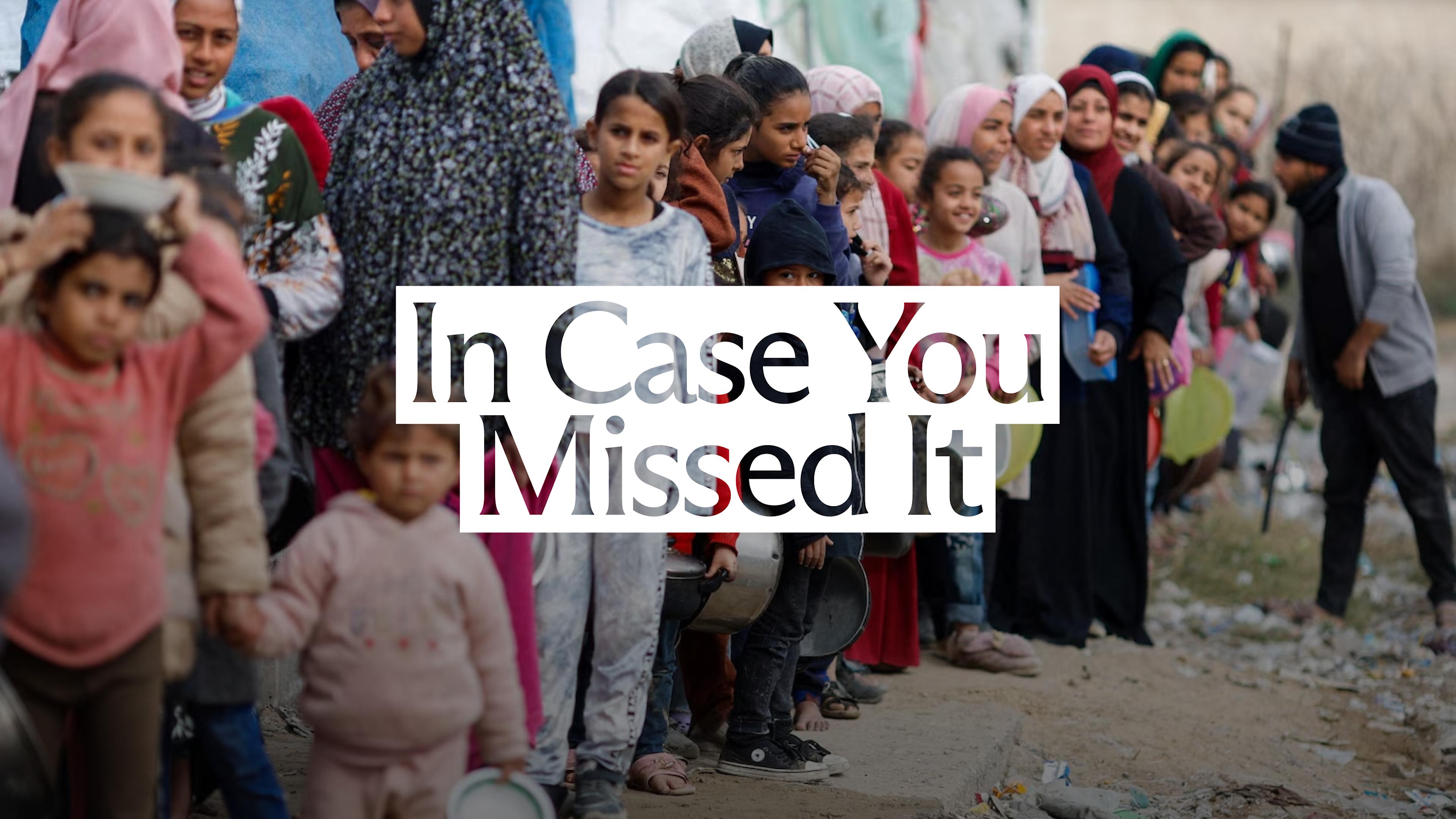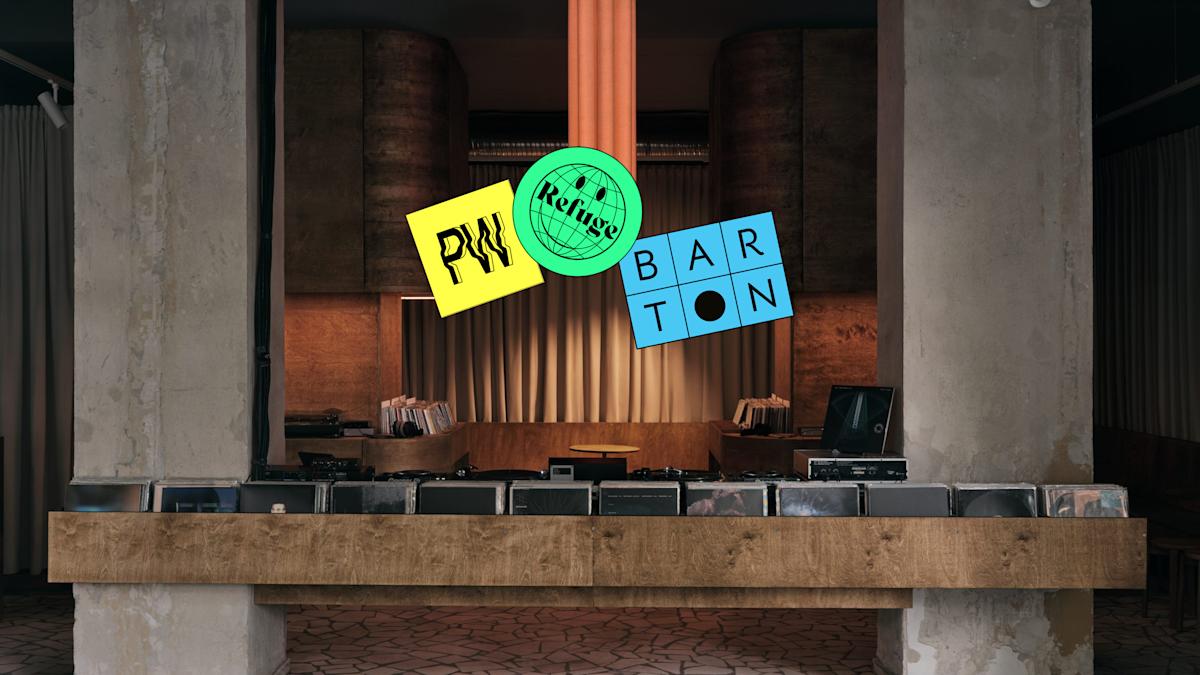
Berlin Stories
This week: Black history month, fusion soundscapes, soli kufa
Loading

This Week: Starvation in Gaza, Murder of Rahma A., Workers Block Arms Shipment
By Staff
Gaza is being starved. In recent days, people on the ground have been reporting the rapidly deteriorating humanitarian conditions, with barely any food or aid entering the Gaza Strip. One million children are at risk of starvation, warns UNRWA. Most shipments are being blocked by the Israeli army at the border, and the Gazan Humanitarian Foundation – administered by Israel and the United States – deliberately distributes insufficient aid. People seeking aid at their distribution centers, often queueing for hours, are frequently killed by Israeli forces firing into the crowds. Malnutrition rates have reached an all-time high, with much of the damage caused by hunger now irreversible, even if those affected were to receive adequate care.
In Germany, Rahma A., a 26-year-old Algerian woman and nursing trainee living in Hanover, was fatally stabbed by her neighbor, in what was widely described as a racist and anti-Muslim femicide and hate crime. Rahma A. has reportedly told family members about being previously harassed and verbally threatened by her neighbor for wearing a hijab. On 4 July, she was stabbed multiple times in the stairwell of her apartment building. Authorities have yet to confirm the motive or press formal charges against the suspect, who was arrested the same day. The murder of Rahma A. has sparked outrage across Germany, with widespread calls for a thorough investigation. However, as previous cases have shown, structural racism remains deeply ingrained in the police and judicial system, and cases of racist violence and femicides are rarely met with accountability or justice.
In the southern Syrian province of Sweida, violent clashes against the local Druze community erupted last week between the Druze and Bedouin fighters. Hundreds of people - the majority of whom are Druze - have been killed, and videos of executed and burned bodies on the street have circulated widely on social media, drawing attention to the situation in Sweida. Damascus sent government troops to stop the fighting, but reports emerged of them participating in violations against the Druze and further escalating the situation. Fighting continued on Saturday despite a call for a ceasefire. Israel, which also houses a large Druze community, attacked the Syrian capital of Damascus and Sweida in what the Israeli military spokesperson claimed to be an act of protection of the Druze. However, this might just be another way to excuse the attack of yet another country. Civilians caught in the crossfire in the province have largely been cut off from food and medical supplies.
Under newly passed legislation introduced by Donald Trump, U.S. Immigration and Customs Enforcement (ICE) has intensified its attacks on civilians and escalated the violent deportation of undocumented people. The Trump administration has granted ICE officers access to personal health data through Medicaid, further expanding state surveillance into people’s lives. With funding increased by $45, new deportation tent camps are being built to hold those facing forced deportation. These centres are known for their inhumane conditions. The new bid also allows for migrants to be detained without hearings. These measures, part of Trump's racist and anti-immigrant mobilisation, have already torn apart thousands of families and are being met with protests by the local population organising to protect one another.

Last week, Greece suspended the right to asylum for people arriving by boat via North Africa – a move that violates European law and puts lives at risk. Approved by the Parliament, asylum seekers will now be returned to their countries of origin without being granted the right to claim asylum, which is still enshrined in the obligation of EU member states. The Greek prime minister also seeks to collaborate with the Libyan authorities to prevent the departure of boats carrying migrants. The Libyan forces and coast guards are documented for committing grave abuses against people on the move. Several Human Rights Organisations like Human Rights Watch and UNHCR have condemned Greece’s suspension of asylum rights.
Last year, protests erupted in Kanaky, also known as New Caledonia in the Pacific, which to this day remains a colony, or so-called “French Overseas Territory” under French control since 1853. In 2024, protestors raised their voices in protest against French rule of the island, which continues to deny true autonomous agency to the indigenous Kanak population. Now, on Saturday, 11 July, new conditions have been agreed upon by representatives of both France and Kanaky. While the agreement does not grant full independence, it extends more freedoms to the Pacific territory and establishes a “State of New Caledonia” within the French Republic.
After 65 years, the French military has officially withdrawn from its last remaining military base in Senegal. Although Senegal gained independence in 1960, France maintained a military presence in the West African nation for decades. The withdrawal marks another step in the broader expulsion of French military from former colonies in the Sahel region like Mali, Burkina Faso, and Niger. Senegalese President Bassirou Diomaye Faye, who was elected in 2024 in a landslide victory, had demanded the full withdrawal by 2025. He has also called on France to acknowledge and apologise for its colonial atrocities committed in Senegal.
Last Wednesday, hundreds of Greek workers and activists gathered to block a military shipment to Israel. In a coordinated grassroots action, they successfully prevented five containers of military grade-steel from being used in aid of Israel’s war on Gaza. Markos Bekris, the president of the port’s container handling workers’ union, publicly condemned the genocide of Palestinians and declared that the port would refuse to take part in any transport operations aiding Israel’s war on Gaza.
All photos under Creative Commons License.

This week: Black history month, fusion soundscapes, soli kufa

A screening, conversation, and live performance at Niemetzstraße 1.

Refuge Worldwide residents head to Romania.